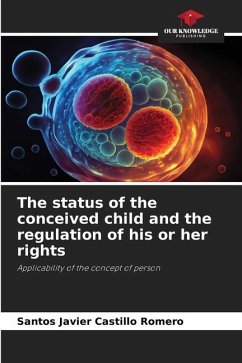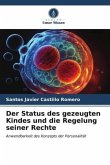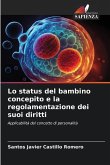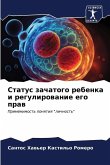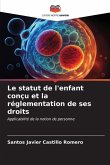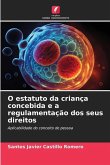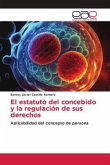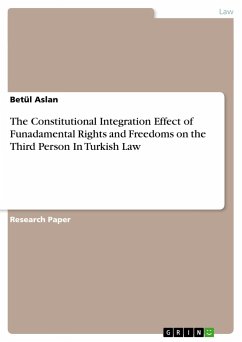The objective of this research was to analyze the ontological and legal status of the conceived child in the Peruvian Civil Code (CCP), in order to provide a basis for the regulation of his or her rights. It had a qualitative approach, basic type, generic grounded theory design. Interview techniques and documentary analysis were used. A structured interview guide was applied to the participants. The results confirmed that it is necessary to modify the CCP by specifying the status of the conceived child and his or her rights. It was concluded that the unborn child is an ontological reality, essentially different from any other type of reality, and that the philosophical concept of person is applicable to it since it acquires intrauterinally the constitutional sufficiency proper to the human being; and that, as a privileged "subject of law", it enjoys in a current, not deferred, manner, personal and patrimonial rights.

